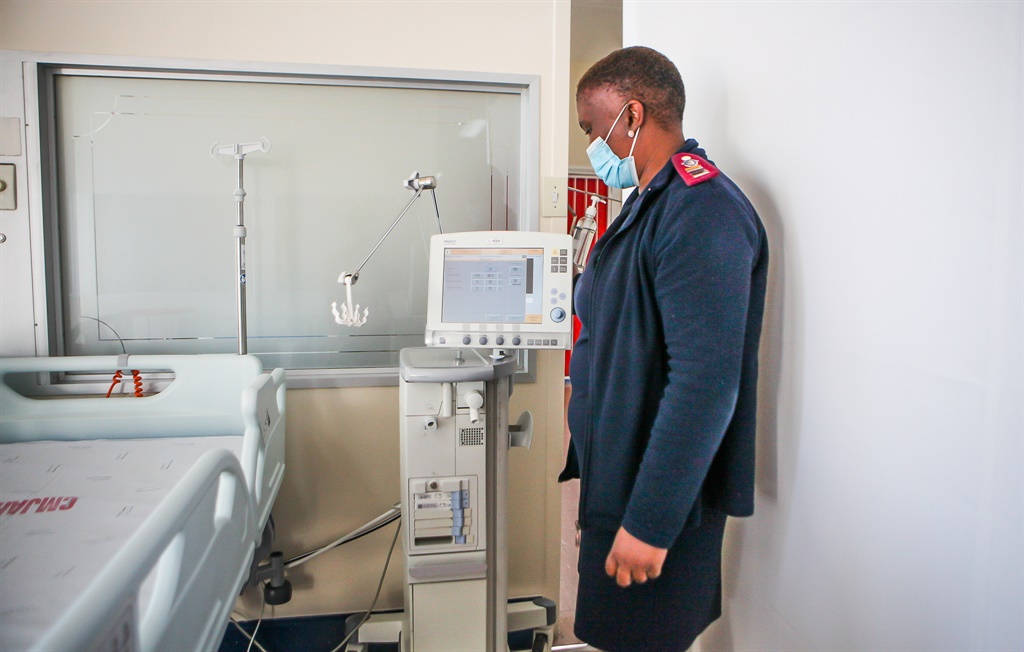- Gauteng Health MEC Bandile Masuku stated it was possible that a patient may not be able to secure an ICU bed.
- Clinicians will make the final call on who gets priority in trauma units.
- This comes amid predictions that Gauteng will reach 120 000 Covid-19 cases by the end of July and 300 000 by the end of August.
With Covid-19 set to place increasing pressure on Gauteng’s health systems as positive cases spike at a faster rate, the province’s health MEC has cautioned that trauma units won’t solely deal with coronavirus patients as a given.
While greater focus has been placed on assessing the readiness of Gauteng’s hospitals to accommodate seriously ill Covid-19 patients, trauma and intensive care units (ICU) will still need to treat patients for other ailments, injuries and emergencies.
Which will take priority?
“Unfortunately, that is an ethical question. There is a lot of discussion that gets into that and it brings a lot of emotions, brings a lot of prejudices,” Gauteng Health MEC Dr Bandile Masuku told News24 on Wednesday.
“There is a criteria that clinicians use and in this state it is important to mention that it is clinicians who should take decisions on who gets onto a vent and who does not get onto a vent. An official or a politician shouldn’t even come close to those discussions because it is not them who make those decisions. It should be the doctors, but like I said it’s an ethical question and a big dilemma,” he added.
Masuku was speaking to News24 exclusively on a wide range of issues ahead of the expected surge in Covid-19 cases in the province, which has been dubbed the “Covid-19 storm”.
READ | Covid-19: ‘It’ll be overcrowded in hospitals’ – Gauteng MEC predicts 300 000 cases by end of August
Masuku is expecting the province to reach 120 000 coronavirus cases by the end of July and 300 000 cases by the end of August, leading to an unavoidable overcrowding of hospitals.
When probed by News24 on whether Gauteng could find itself in a situation where some patients would not be able to secure an ICU bed, Masuku admitted this was a possibility.
“Possibly, and that is what clinicians must make decisions on and that is why they are trained for seven years and some even become professors. It has to take a lot of discussion amongst themselves to agree who needs it more,” he explained.
As of 11 June, the capacity of ICU and high care beds in the province was a total of 749 beds in the private sector and 393 in the public health sector.



The ICU ward fitted with modern equipment at the Charlotte Maxeke Johannesburg Academic Hospital.
On 1 June, the country dropped to Level 3 of the risk-adjusted lockdown strategy, which saw the sale of alcohol reintroduced and the 20:00 curfew abandoned.
Just days later, there were reports of trauma units at a number of hospitals across the country straining under the pressure of increased cases, many linked to alcohol consumption.
READ | Level 3: Trauma cases rise at 2 Cape Town hospitals just days after easing of regulations
The MEC was still in the process of collating the impact of alcohol-related incidents on the province’s trauma units, but he reiterated that attempts to save a patient’s life will be prioritised as best as possible, whether the person has Covid-19 or not.
He said:
It should be about the clinicians’ decision on who needs it more, you know. And it shouldn’t be what I feel, whether it was a person who was stabbed during a bar brawl or a person who is infected with Covid-19. It should still be a decision of doctors and clinicians of who actually has to get onto the ventilator.
“As a doctor, I will have to make sure who does need it very well in terms of saving lives, who needs it more than the other because lives in any case, whether Covid or not, it is still something that is precious, that we need to fight for. We still have to preserve life, whether it’s Covid or not,” he added.
Masuku further cited Italy as an example, where doctors used two factors – age and comorbidities – during triage.
“In Italy, anyone who was above 60 didn’t, they were not ventilated. Anyone who has got more than two comorbidities like hypertension and diabetes, they would not put them on a vent. They would actually opt for those who are younger, who have got a bigger possible future ahead of them. Those are difficult decisions that clinicians must get into.
“Ideally we would say everything must be available for everyone but that is not possible. That is not how nature is. There will still be resources that remain scarce,” he said.
Stay healthy and entertained during the national lockdown. Sign up for our Lockdown Living newsletter. Sign up and manage your newsletters in the new News24 app by clicking on the Profile tab

